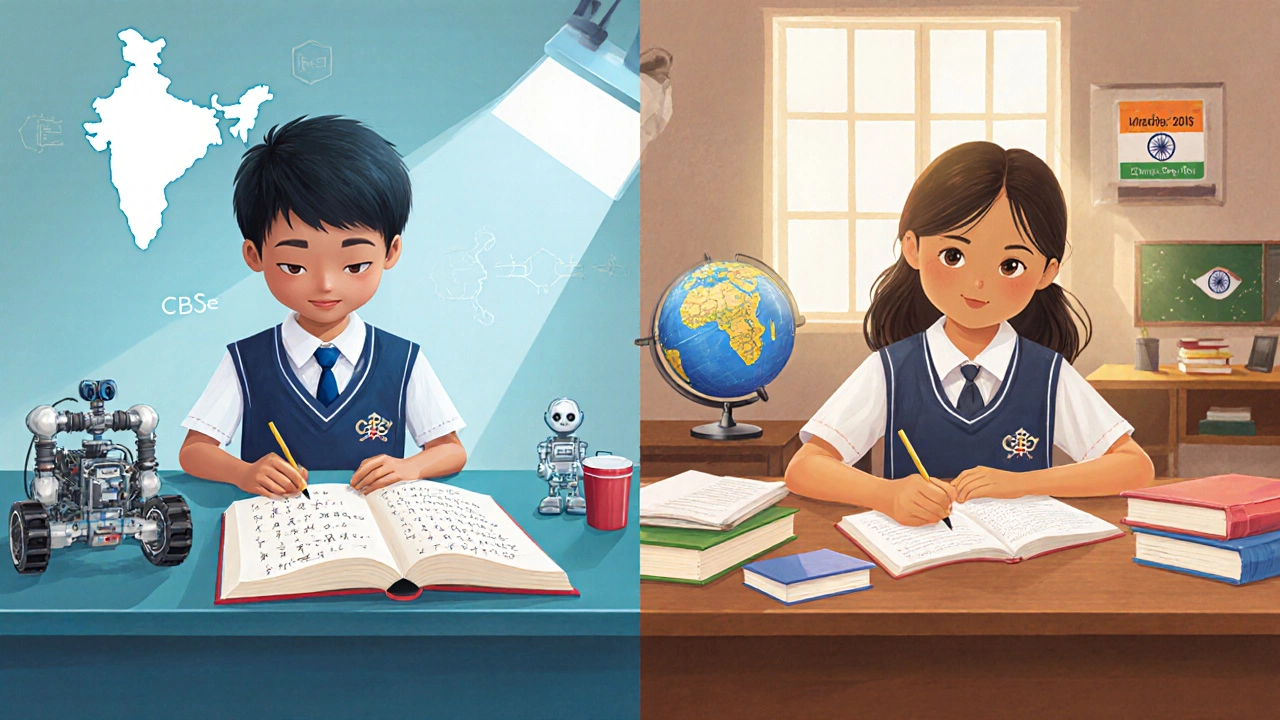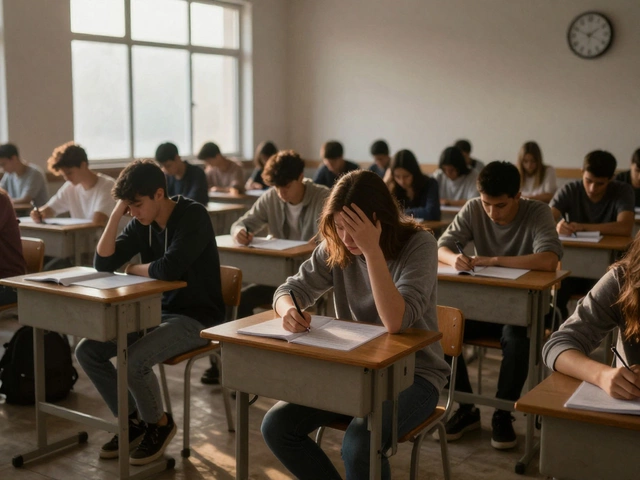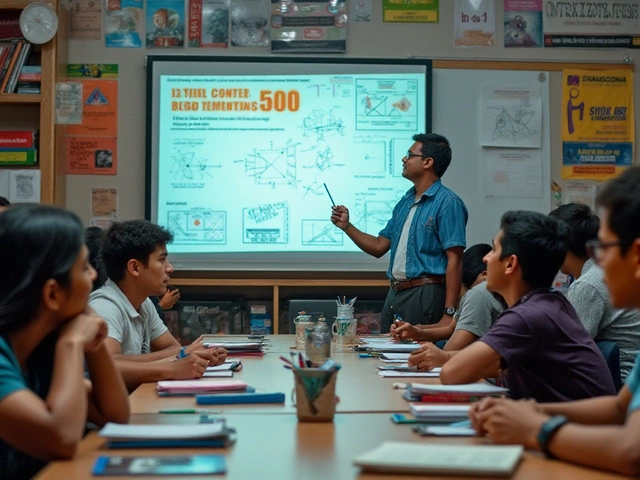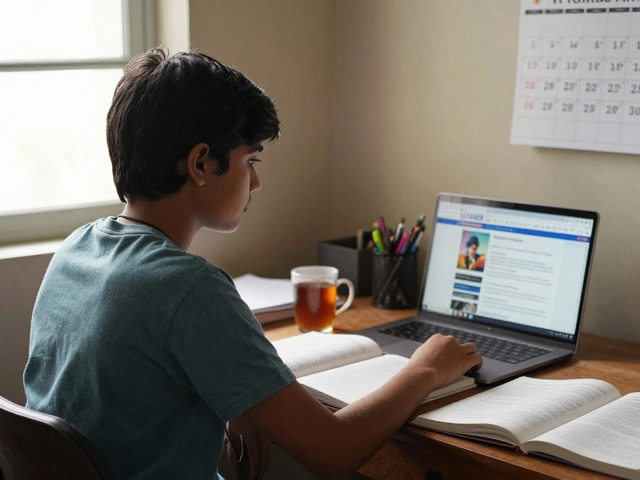Choosing the right education board for your child isn’t about picking the most popular one-it’s about matching the system to your child’s learning style, future goals, and family priorities. With so many options in India-CBSE, ICSE, IB, and various state boards-it’s easy to feel overwhelmed. But the truth is, there’s no single "best" board. The right one depends on your child’s needs, your location, and what kind of future you’re preparing them for.
What Makes CBSE Different?
CBSE, or the Central Board of Secondary Education, is the most widely followed board in India, with over 20,000 affiliated schools across the country and abroad. It’s the go-to choice for families who plan to take competitive exams like JEE, NEET, or UPSC. Why? Because the CBSE syllabus is designed with those exams in mind.
The CBSE curriculum is streamlined. It focuses on core subjects-Maths, Science, English, and Social Science-with clear, structured content. Textbooks are simple, explanations are direct, and the exam pattern rewards clarity over creativity. For example, in Class 10 Science, CBSE covers 16 chapters with a heavy emphasis on physics formulas and biology diagrams. That’s exactly what you’ll see in JEE and NEET entrance tests.
CBSE also updates its syllabus regularly to align with national education policies. The 2024-25 syllabus reduced rote memorization in favour of application-based questions, making it more aligned with modern learning standards. Schools following CBSE often have better access to digital resources and coaching materials tailored for national-level exams.
How Does ICSE Compare?
If your child thrives on depth, discussion, and language, ICSE (Indian Certificate of Secondary Education) might be a better fit. Run by the CISCE, ICSE is known for its broader, more detailed curriculum. It covers more subjects-often 10 or more at the Class 10 level-compared to CBSE’s 5-7 core subjects.
For example, in ICSE English, students study full novels like The Merchant of Venice and write analytical essays. In Science, they dive into lab reports and project work, not just textbook summaries. History and Geography aren’t just facts to memorize-they’re explored through case studies and source analysis.
ICSE is harder. The exams are longer, the marking is stricter, and the pass rates are lower. But that’s also why many international universities prefer ICSE students. The board builds strong writing skills, critical thinking, and research habits. If your child is going to study abroad or pursue humanities, law, or journalism, ICSE gives them an edge.
State Boards: Local Strength, National Limitations?
State boards like Maharashtra State Board, Tamil Nadu State Board, or Uttar Pradesh Board follow curricula designed for local needs. That means the syllabus often includes regional history, language, and culture. For families who plan to stay in one state, this can be a big advantage.
But here’s the catch: state boards vary wildly in quality. In some states, the syllabus is outdated, exam papers are easy, and teaching standards are inconsistent. A student from a rural state board school might struggle to keep up with CBSE or ICSE peers in competitive exams or when applying to national colleges.
That said, if your child is strong in their local language, plans to attend a state university, or is preparing for state-level exams like MPSC or TNPSC, a state board can be the smartest choice. Many top engineering and medical colleges in Maharashtra and Karnataka now accept state board students with high scores-especially if they’ve cleared JEE or NEET.
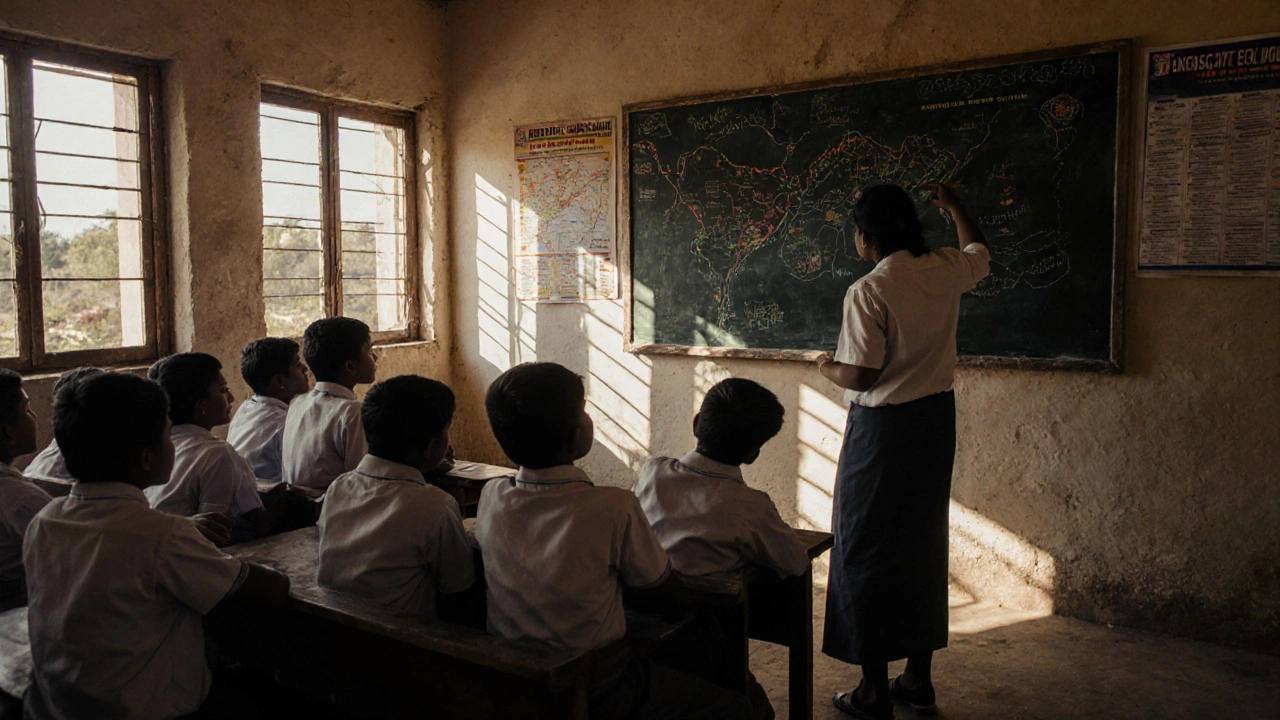
What About International Boards Like IB and Cambridge?
If you’re considering moving abroad or want a global perspective, IB (International Baccalaureate) or Cambridge (IGCSE/A-Levels) are strong options. These boards focus on inquiry-based learning, independent projects, and global awareness. An IB student might spend months on a research project about climate change in their city, not just memorize textbook facts.
But these boards come with a cost. Fees can be 3-5 times higher than CBSE schools. Not every city has them. And if your child plans to take JEE or NEET, they’ll need extra coaching because IB doesn’t align with those exams. Still, for families with global ambitions, the flexibility and recognition are unmatched.
Real-Life Scenarios: Who Wins Where?
Let’s say your child is in Class 6 and loves building robots. They’re already tinkering with Arduino kits and watching YouTube tutorials on coding. CBSE is the clear winner here. Its Physics and Computer Science syllabus from Class 8 onward directly supports STEM projects. Most robotics competitions in India-like Robocon or Techfest-expect CBSE-level knowledge.
Now imagine your child is 12 and writes poetry, reads novels, and wants to be a writer. ICSE’s emphasis on literature, grammar, and expressive writing will nurture that talent far better than CBSE’s formulaic English curriculum. Many top journalism colleges in Delhi and Mumbai prefer ICSE applicants.
What if you live in a small town in Bihar, your child’s dream is to become a district collector, and you can’t afford private coaching? A strong performance in the Bihar School Examination Board (BSEB), followed by UPSC preparation, is a proven path. Thousands of IAS officers came from state board backgrounds.
Key Factors to Consider
- Future exams: If your child aims for JEE, NEET, or NDA, CBSE is the safest bet. If it’s medical or engineering abroad, IB or ICSE might be better.
- Learning style: Does your child remember facts easily? CBSE works. Do they need to understand context and write essays? ICSE fits better.
- Location: Are you moving soon? Stick with CBSE-it’s accepted everywhere. Staying put? A strong state board can be just as valuable.
- School quality: A good ICSE school beats a weak CBSE school. The board matters less than the teachers and resources.
- Stress levels: ICSE has heavier workloads. CBSE is more predictable. Choose based on your child’s mental resilience.

What Parents Often Get Wrong
Many parents think CBSE is "easier"-so they pick it for the grades. But CBSE isn’t easy. It’s just focused. The real challenge isn’t the syllabus-it’s the competition. Thousands of CBSE students take JEE every year. Your child needs to stand out, not just pass.
Others believe ICSE is "better" because it’s more detailed. But if your child hates writing long answers or gets overwhelmed by too many subjects, ICSE can become a burden. Grades matter less than confidence.
The biggest mistake? Choosing a board based on what your neighbour did. Your child isn’t your neighbour’s child. Their strengths, pace, and dreams are different.
Final Decision Checklist
Before you enroll, ask yourself:
- Does my child enjoy memorizing facts or analyzing problems?
- Are we planning to take national competitive exams? If yes, CBSE is ideal.
- Do we want our child to study abroad? ICSE or IB are preferred.
- Is the school we’re considering actually good? Visit it. Talk to current students.
- Can we afford the fees? ICSE and IB schools cost more-sometimes significantly.
- Will my child be happy here? A child who dreads school won’t thrive, no matter the board.
There’s no perfect board. Only the right one-for your child, right now.
Is CBSE better than ICSE for JEE preparation?
Yes, CBSE is generally better for JEE preparation. The CBSE syllabus for Physics, Chemistry, and Maths in Classes 11 and 12 matches almost exactly with the JEE Main and Advanced syllabus. Most JEE coaching materials are built around CBSE textbooks. ICSE students often need extra coaching to cover gaps in topics like dimensional analysis, thermodynamics, or coordinate geometry, which are covered in more depth under CBSE.
Can a student switch from ICSE to CBSE in Class 9?
Yes, switching from ICSE to CBSE in Class 9 is possible and fairly common. Many families make this change if they’re planning for JEE or NEET. The transition can be tough because ICSE covers more subjects and has a heavier English load. But CBSE’s structured syllabus and fewer subjects make it easier to focus on core science and maths topics. Schools usually offer bridge courses to help with the shift.
Are state board students eligible for IITs and NITs?
Absolutely. IITs and NITs admit students based on JEE scores, not the board they studied under. A student from any board-CBSE, ICSE, or even a rural state board-can get into an IIT if they score high enough in JEE Advanced. Many top rankers come from state board backgrounds. What matters is preparation, not the board name.
Does CBSE give more weightage to practical exams?
CBSE gives 20-30% weightage to practicals in Science and Maths subjects, depending on the class. For example, in Class 10 Science, 20 marks out of 80 are for lab work and viva. ICSE gives slightly more-up to 30% in some subjects-but with stricter evaluation. The key difference is that CBSE practicals are standardized across the country, while state boards vary widely in how they conduct them.
Which board is best for a child who struggles with exams?
For a child who gets anxious during exams, CBSE is often the better option. Its exam pattern is predictable: multiple-choice questions, short answers, and clear marking schemes. ICSE and IB require longer written responses and subjective evaluation, which can increase stress. Also, CBSE offers internal assessments and project-based grading in higher classes, which helps balance exam pressure.
What Comes Next?
Once you’ve picked a board, don’t stop there. The board is just the starting point. What matters most is the quality of teaching, the school culture, and whether your child feels supported. Visit schools. Talk to parents of Class 10 students. Ask: "Did your child enjoy learning here?" Not "Did they get good marks?"
If you’re still unsure, start with CBSE. It’s the most flexible. You can always switch to ICSE later if your child shows a passion for literature or arts. But going the other way-from ICSE to CBSE-is harder after Class 9.
Remember: your child’s success isn’t written in a syllabus. It’s built in the classroom, at home, and in the quiet moments when they choose to keep trying-even when it’s hard.
